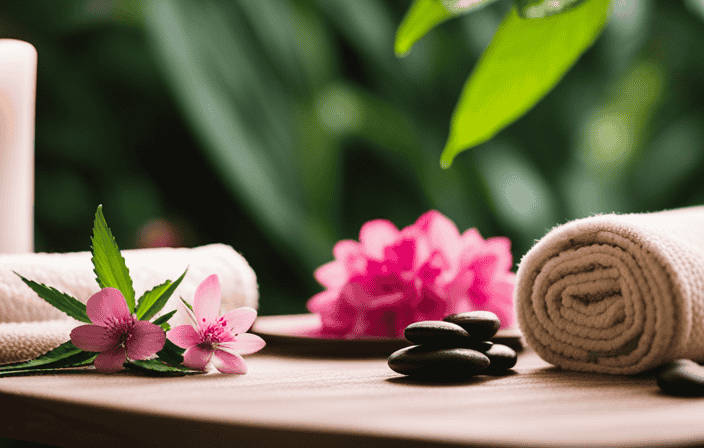Experiencing a breakup can be difficult and confusing, as it involves more than just the termination of a relationship. It is a journey filled with emotional challenges that can make us feel exposed and unsure about what lies ahead. However, there are valuable insights to be gained from confronting this tough situation directly. In order to truly comprehend how to progress after a breakup, it is essential to first establish a clear definition of it.
A break-up is when two people who had previously been involved in some type of romantic bond decide to part ways with one another for whatever reason. This could mean anything from simply drifting apart due to different paths in life or ending a long-term engagement or marriage as both parties reach the conclusion that they no longer wish to stay together. Regardless of what form it takes, all break-ups involve saying goodbye and realizing that things will never return to normal again – at least not in their current state.
Even though break-ups can be incredibly challenging experiences, by viewing them through the lens of acceptance instead of abandonment, we open ourselves up to learning valuable insights about ourselves and growing into better versions of ourselves in the wake of such circumstances. With this new insight comes greater wisdom that guides us towards healthier relationships in our future endeavors.
Acceptance Of The Outcome
As the dust settles after a break-up, it can be difficult to come to terms with what has happened. Acknowledging that the relationship is over and learning how to accept the outcome of your situation is integral in moving forward. Here are 10 life lessons learned from accepting a break-up:
- Take time for yourself – Taking some alone time helps you process your feelings, heal, and gain clarity on things. This can take days or weeks, depending on how long the relationship was and how intense it was.
- Don’t rush into anything new – You don’t need to jump into another relationship just because you’re feeling lonely or want someone else’s attention. Allow yourself time to fully recover and understand what went wrong before entering something new.
- Lean on friends & family – It’s ok to reach out when times get tough! Your loved ones will be more than happy to lend an ear whenever needed; talking about it can help put things in perspective as well as make you feel better .
- Let go of blame & guilt – Blaming each other doesn’t solve anything so try not to point fingers if possible; instead focus on forgiving one another (even if it feels hard) and taking responsibility for the part that you played in this ending too.
- Learn from mistakes – Instead of dwelling on negative aspects of the past, use them as opportunities for growth by understanding where both parties could have done better/acted differently in order to sustain the relationship longer term.
- Accept change gracefully – Change is inevitable but also necessary; although it may seem scary at first, remember that sometimes endings are blessings disguised as tragedies so embrace whatever comes next knowing everything happens for a reason!
- Don’t forget self-care – Make sure you prioritize your mental health during this period; do whatever brings joy such as eating nutritious meals or going outside even if its just for 15 minutes every day – these small acts add up!
- Remain hopeful & optimistic – There will always be light at the end of any tunnel no matter how dark it looks right now; stay positive by focusing on all good memories shared rather than bad ones which won’t serve any purpose except cause unnecessary heartache down the line…
- Find closure through communication – Communication between exes can be incredibly valuable in helping each person move forwards without lingering questions or regrets hanging overhead especially if there were unresolved issues prior their split! So talk openly about why things ended if safe enough space exists within either party.. 10 . Love yourself first – Remember above all else that loving yourself should always come first regardless of whether anyone else does or not ; only then can true acceptance occur 💜 11. and only then can true happiness follow.
Acknowledging Your Feelings
As the old saying goes, “It’s not what happens to us that counts; it’s how we react to it.” Acknowledging your feelings in the aftermath of a break-up is essential for emotional healing and growth.
| Validating Emotions | Allowing Feelings |
|---|---|
| Accepting your emotions as valid | Giving yourself permission to feel those emotions without judgment or guilt |
| Letting go of expectations | Fostering an attitude of self-compassion and unconditional acceptance of your feelings |
Exploring our emotions can be difficult but necessary when dealing with break-ups. Acknowledge whatever you are feeling and take time to gently observe them without judging them as bad or wrong. Don’t bottle up these feelings – instead give yourself space and freedom to express them fully so they do not get stuck inside you. This will help create more inner peace, allowing you to cope better with the pain of the loss. Once you have done this, it will be easier for you to move on from the experience with greater understanding about who you are and what matters most in life.
The process of acknowledging your own emotions is incredibly empowering. It brings clarity on where you stand emotionally, giving insight into areas needing attention which may otherwise remain hidden beneath denial or avoidance tactics. Validating your true feelings gives courage to confront any lingering issues holding back progress towards personal fulfilment and well being going forward in life. By embracing our natural capacity for emotional resilience, we open up possibilities for increased self-awareness and wisdom moving ahead after a break-up.
Forgiveness Of Yourself And Others
When it comes to a break-up, one of the most important life lessons is learning how to forgive yourself and others. We often blame ourselves for our mistakes in relationships, but it’s important to recognize that we are all human and make mistakes. It’s okay to acknowledge your own shortcomings, take responsibility for them, then move on by forgiving yourself. Letting go of guilt will help you heal and create space for growth.
Forgiveness also applies to those who have hurt us or been part of the cause of our breakup. Learning how to forgive can be difficult, but if done from an honest place within, it can lead to inner peace and healing. Acceptance of another person’s imperfections helps us learn empathy and opens up communication channels towards understanding each other better. When we accept someone else as they are without judgement or criticism, this not only allows us both to grow individually but also strengthens bonds between people.
We must also remember that forgiveness doesn’t mean condoning bad behaviour; rather it means having compassion for ourselves and others no matter what has happened in the past or present situation. Self-acceptance is key when trying to practice forgiveness – accepting who we are with grace and kindness can open the door for self-forgiveness as well as forgiveness towards others. By taking the time to cultivate these feelings, we can begin creating more positive energy into our lives after a break-up which leads us down a path toward healthier relationships in the future.
Taking Control Of Your Life
Breaking up can be an incredibly difficult experience, but it also presents a valuable opportunity to regain control of your life. Here are some important lessons you can learn from going through such a challenging time:
- Regaining Control:
- Take ownership of your emotions and thoughts by recognizing that nobody else is responsible for how you feel.
- Establish boundaries around what kind of behavior and treatment you will accept in relationships.
- Learn to trust yourself more when making decisions so that you don’t end up with the same situation again.
- Cultivate resilience in order to keep moving forward despite setbacks or disappointments.
- Taking Ownership:
- Recognize that nobody else has the power to determine your value as a person – only you do!
- Identify any unhealthy patterns or behaviors that may have been contributing factors in the breakup.
- Make conscious changes to improve decision making and communication skills so future relationships benefit rather than suffer from them.
- Establishing Boundaries:
- Honor yourself by setting clear limits on what type of words and actions are acceptable from others.
- Respectfully hold others accountable if they cross those boundaries without fear of reprisal or guilt trips.
- Create space between yourself and people who take advantage of kindness or compassion without giving anything in return.
By taking these steps, you can empower yourself with confidence and self-worth while gaining clarity on what really matters most – both within relationships and in life overall. With this newfound wisdom, navigating potential pitfalls becomes easier, allowing for better choices that lead to healthier connections down the line.
Letting Go And Moving On
Letting go and moving on after a break-up is like untying the strings of a kite that has been stuck in the same place for too long. The feeling of freedom, once you finally take off, can be so freeing. Learning to let go and move forward with your life can help bring healing and closure to what was lost during the relationship. Below are 10 essential life lessons learned from letting go of a past relationship:
- It’s ok to feel sad and angry – Letting go doesn’t mean suppressing emotions but rather channeling them into something productive. Acknowledge how you feel and use it as an opportunity to reflect on yourself and grow stronger.
- Life goes on – Being single might seem daunting at first but remember there is much more out there than just this one person or relationship status quo. Move ahead despite any fears or apprehensions because life won’t wait around forever!
- Learn from mistakes – Accept responsibility for whatever role you played in the breakup instead of pointing fingers elsewhere. Every experience teaches us something about ourselves if we choose to look deeper within.
- Forgive yourself & others– Holding onto grudges will only weigh you down emotionally, mentally, spiritually even physically; forgiveness helps reach peace within yourself while creating space for newer possibilities in life which would have otherwise remained blocked due to lingering negative feelings towards someone else or even yourself.
- Trust Your Gut Instincts– Often times our intuition knows best when it comes to matters of love and relationships; practice trusting your gut instincts more often as they may save you from future heartache by steering away from people who don’t deserve your trust or affection yet again!
6 .Focus On Yourself– Don’t rush into another relationship when all wounds aren’t healed; take time out for self reflection & focus on bettering yourself before bringing anyone new into your orbit again; prioritizing personal growth over anything else always works wonders!
7 . Find Closure– Allow yourself time alone or with friends/family where possible to heal, process grief and find closure about past relationships in order to truly move forward without regrets weighing heavy upon oneself anymore.
8 . Live In The Moment—Don’t dwell too much on what could’ve been different, roll up those sleeves and start living each day as its own journey full of experiences worth cherishing regardless of circumstances beyond control!
9 . Believe In Love Again—It’s easier said than done, but learning how to open up your heart again is important because true love awaits everyone eventually no matter what happens along the way; learn how not lose faith, keep trying until success finds its way back home someday soon enough!
10 . Practice Self Care—Put aside all expectations placed by society regarding romantic partnerships & embrace self care rituals such as yoga/meditation etc., which allow inner calmness & peace needed for healthier coping mechanisms post break-ups! Taking good care of one’s mental health should always come first above everything else indeed..
With these valuable lessons under our belt, it’s now time to discover new interests and hobbies that make us happy…
Discovering New Interests And Hobbies
Breaking up is never easy. But, it can also be an opportunity for self-discovery and growth. One of the best ways to take advantage of this situation is to find new interests and hobbies that you may have overlooked in the past. This can help bring clarity to your feelings and give you a sense of purpose.
One great way to start exploring these newfound pursuits is by joining online communities with like-minded individuals who share similar passions or are curious about discovering something new together. You could also look into local events related to your specific interests such as art classes, cooking workshops, sports leagues, etc.. It’s always helpful having someone else there with you as well; not only will they provide moral support but they can offer valuable advice too!
Finally, taking on a new hobby or interest gives you time away from any negative emotions associated with a break-up while allowing you to explore parts of yourself that might have been neglected before. Allowing yourself to discover what makes you truly happy will ultimately make the road ahead easier and more fulfilling—even if it’s taken some heartache to get here first. As we transition into identifying our strengths and weaknesses, it’s important to remember that embracing change brings us closer towards happiness every step of the way.
Identifying Your Strengths And Weaknesses
As we move from discovering new interests and hobbies to understanding self-worth, it is important to identify our personal strengths and weaknesses. Taking the time for a thorough self-assessment can be incredibly helpful in developing meaningful growth on our individual journey of emotional healing after a break-up.
When assessing our abilities, it is essential to recognize both positive attributes as well as areas of opportunity where improvement could be beneficial. Acknowledging our strengths can help us build confidence and trust in ourselves that will pay dividends when faced with difficult situations down the road. Additionally, being honest about our weaknesses helps us to understand how these traits may have contributed to the demise of a relationship or hindered communication while trying to resolve issues within one.
Self-assessment doesn’t always come easily; however, taking an inventory of all your qualities and recognizing any blind spots you might have been unaware of until now can open up possibilities for reevaluating your approach towards relationships. By striving for continued personal growth through identifying strengths, recognizing weaknesses, and assessing abilities, we can better equip ourselves with the tools necessary for future relationships – whatever shape they take!
Understanding Self-Worth
The process of a break-up can be an extremely difficult time for anyone, yet it is also an opportunity to learn valuable lessons about understanding your own self-worth. After experiencing the pain and heartache associated with a breakup, one’s appreciation for their authentic value increases significantly. Taking the necessary steps to develop and maintain healthy levels of self-respect, self-esteem and even self-love are essential components in the journey towards building long term resilience.
It is important to remember that no matter how hard the situation may seem, you always have control over how you react to it. Acknowledging your own unique worth allows you to become more confident in making decisions that benefit yourself without worrying about what others think or say. With this newfound sense of strength, comes an appreciation for what makes us truly happy and fulfilled as individuals. Instead of focusing on pleasing those around us, we should prioritize our own needs first before anything else.
At times when emotions run high during such trying circumstances, having positive reinforcement from those closest to us helps immensely. Having people who love and care for us unconditionally remind us of our true potential gives much needed encouragement at such moments; however, ultimately it is up to ourselves to accept and appreciate our intrinsic value despite any external difficulties encountered along life’s path. This understanding serves as a powerful reminder that nothing can take away from our inherent worth – not even a breakup! Moving forward into the subsequent section about building self esteem requires embracing these realizations wholeheartedly
Building Self-Esteem
Breaking up can be an incredibly difficult experience. But it doesn’t have to mean the end of life as you know it. In fact, a break-up is often an opportunity for personal growth and development. Here are ten valuable lessons that can be learned from a break-up that will help you build self-esteem and confidence:
- You are worthy of being loved – no matter what happened in your relationship, remember that there is nothing wrong with you or unlovable about you. Remind yourself daily that everyone deserves love and acceptance, including yourself!
- Focus on the positives – instead of focusing on everything negative surrounding the breakup, try to focus on the positive things like all the new doors opening in front of you now or how much stronger your relationships with family and friends may become afterward.
- Take time for yourself – after a breakup, take some ‘me’ time to do activities that make you feel good about yourself such as reading books, meditating, writing down goals/dreams or getting out into nature for some fresh air and relaxation. All these things can help boost your self-esteem and give you a renewed sense of purpose.
- Express gratitude – when feeling low about the breakup, start expressing gratitude for all the moments shared during the relationship because even though it didn’t work out in the end, those memories still hold value in our lives; so don’t forget to thank them for sharing their time with us too!
- Learn from mistakes – use this opportunity to reflect on any mistakes made during the relationship so we can learn how not to repeat them again in future relationships; also identify areas where we could improve ourselves (e.g., communication skills).
- Embrace change – accept that sometimes things just don’t work out despite our best efforts but look at this period as an exciting chance to reinvent yourself by exploring new interests or trying something different than before (e..g attending classes outside academic interest)– this will allow us to grow both personally and professionally .
- Set boundaries – if needed set boundaries between both people involved post break-up; this includes avoiding contact unless it involves important topics/conversations related to kids/property etc… Setting boundaries helps ensure both parties respect each other’s space while giving one another room enough breathe after such an eventful situation occurred in their lives recently 8. Forgive & let go – forgive oneself for anything done wrong during relationship; letting go is necessary part of moving forward towards healthier lifestyle choices which ultimately leads us back onto path filled with joy & happiness 9 . Investigate further – investigate why did things turn sour? What leaded up to ultimate demise? Did I play role somehow? By asking ourselves these questions honestly we open door leading towards understanding root cause(s) behind entire ordeal 10 . Have faith – having faith in better days ahead means believing bad times eventually pass allowing sun shine through dark clouds covering sky momentarily This way allows us freedom explore true potential living within us without fear judgement Each person has unique journey awaiting him/her therefore must grab wheel control own destiny Being able rely own abilities without relying someone else creates strong foundation building self-esteem confidence Truly independent individuals never worry what others think they capable achieving Nothing feels grandeur then knowing dreams worth pursuing Taking initiative create brighter tomorrow surest sign courage strength Knowing breaking point means recognizing strengths weaknesses Now more than ever time invest effort improving esteem boosting activities
Being Independent
Being Independent is an essential life lesson learned from a break-up. Nobody wants to feel helpless and dependent on their partner, so learning how to be more self-reliant can give you the autonomy that you need to cope with your single status.
| Self-Reliance | Being Single | Autonomy |
|---|---|---|
| Independence | Empowerment | Freedom |
| Confidence | Resilience | Choice |
| Courage | Contentment | Power |
Financial independence is often one of the first steps towards being independent after a break-up. Taking control of your own finances by budgeting, managing debt, creating savings goals and finding ways to increase your income are all very empowering processes that help us learn to rely on ourselves instead of our partners for financial support. Furthermore, having emotional freedom means taking responsibility for our own feelings and emotions without relying on someone else’s validation or approval. This does not mean shutting out other people completely; rather it encourages us to take responsibility for our own happiness and personal growth.
Finally, it’s important to remember that although being single can sometimes seem isolating, there are also many opportunities that come with it such as enjoying more free time, developing new hobbies and interests, exploring different places solo or making new friends who may become lifelong companions in the future. With some courage and resilience we can find contentment in our newfound independence – understanding that this was only a chapter in life’s journey – while looking forward into the possibilities ahead of us…and learning how to love again!
Learning How To Love Again
Breaking up is difficult, but it can also be a time of learning and growth. Learning how to love again after the end of a relationship can feel daunting, but with some self-reflection and understanding there are ways to find new love.
The first step in finding love again is to focus on yourself. It’s important to practice self-care during this time by engaging in activities that make you feel happy, such as going for walks or taking yoga classes. Additionally, take time to learn about your own needs and wants when it comes to relationships; knowing what you want from a partner will help you attract more compatible people into your life.
When you’re ready, dating again can be an exciting experience! Make sure to go out with friends who have similar interests so that you don’t feel overwhelmed or pressured when meeting someone new. Be open-minded and appreciative of others’ unique qualities – remember that everyone has something special they bring to the table. With each date, try not to put too much pressure on yourself – focus instead on having fun and getting back into the swing of things!
Finally, allow yourself ample time before jumping into another serious commitment. Take joy in being single and use this opportunity as a chance for personal growth; while healing from heartbreak is never easy, accepting past experiences as part of our journey helps us move forward towards healthier relationships down the line.
Experiencing Growth And Change
The end of a relationship often brings an unexpected opportunity for growth and change. After all, if we can make it through a painful break-up without losing our sense of self, then the experience is bound to be rewarding in some way. Here are just a few life lessons that I’ve learned from my own post-break up journey:
- Accepting responsibility – It’s easy to blame others when things don’t work out as expected, but ultimately you have control over your own choices and actions. Taking ownership of these decisions allows us to move forward with greater clarity and purpose.
- Self-love & compassion – Remind yourself that there was once love between you both; this doesn’t mean you should stay together forever, but rather take comfort in knowing that what once existed still exists within you both. Show yourself kindness during times of difficulty – it will help lighten your load!
- Trust your intuition – We often know deep down when something isn’t right or when its time to move on – trust those instincts. Listen to them even if they contradict everything else around you; they may just be guiding you towards the best version of yourself yet!
Breakups can be difficult and overwhelming, but by utilizing these life lessons, we can come out stronger than ever before! Through understanding ourselves better and having more faith in our gut feelings, we are able to navigate our emotions with greater ease and develop healthy coping strategies for any situation that comes our way.
Developing Healthy Coping Strategies
The pain of a break-up can be overwhelming, but it is possible to develop healthy coping strategies so that the experience doesn’t define us. Here are some ideas for finding relief and creating positive change:
| Activity | Benefit | Action Plan |
|---|---|---|
| Exercise regularly | Boosts mood & energy levels while reducing stress hormones; reduces risk of depression & anxiety | Choose an activity you enjoy (brisk walking, running, swimming, dancing) and set aside at least 30 minutes daily or three times per week to exercise. Make sure to take regular breaks throughout the day as well. |
| Re-connect with yourself/ your values | Allows you to take stock of who you are now & what matters most in life; helps prioritize goals moving forward | Reflect on experiences leading up to the break-up – what could have been done differently? Identify areas where changes need to be made. Set small achievable goals each day related to these areas. Take time out from relationships if needed – spend time alone doing activities that make you feel inspired and recharged. Seek help from friends and family when necessary. |
| Reach out for support / Talk about it openly | Acknowledging feelings can help release pent up emotions; talking about our situation aids in processing thoughts & building understanding around them; connecting with others makes us feel less isolated during difficult times | Connect with people in person or online who understand what we’re going through – join support groups, communicate via chat rooms etc., talk honestly & openly about how we are feeling without holding back or being too hard on ourselves. Share stories, ask questions & seek advice when required. |
These steps can provide direction and clarity during tough times, helping create more meaningful connections between mind and body which foster healthier ways of responding to adversity in future situations. By taking responsibility for our own wellbeing – even when things seem uncontrollable – we become better equipped to transform challenging moments into learning opportunities that bring growth and fulfillment down the road.
Finding Gratitude In Life’S Experiences
The sun is setting on the horizon, casting a warm orange hue across the sky. On this balmy evening, I stand at the top of a hill and reflect on life’s experiences – in particular, my recent break-up. As I look back over our relationship that has ended and all it taught me, I find myself feeling grateful for everything it brought into my life.
In times like these, post-breakup or post-split can often bring us to a place of self-reflection. We may be tempted to dwell on negative feelings such as anger, hurt or sadness; however, if we take time to focus on what we have gained through our experience – even if it was only lessons learned – then we can start finding gratitude in life’s experiences.
Our relationships teach us valuable lessons about ourselves: who we are and how we want to be treated by others. Through them, we come to understand the importance of communication and compromise, respect and trust. Even though the end of a relationship can feel painful, taking time for mindful reflection allows us to appreciate what it gave us while allowing space for growth moving forward.
As I stand atop this hill watching the sunset light up the sky with its fading warmth and beauty, I am thankful for all that my past relationship has given me: strength within myself; knowledge about love; an appreciation for human connection; understanding around boundaries; courage to speak up when something isn’t right…and so much more!
Frequently Asked Questions
What Is The Best Way To Start Dating Again After A Break-Up?
Breaking up can be one of the hardest things to go through in life, and it’s important to take time for yourself after going through a break-up. After you’ve taken some time to heal and process your emotions, you may find that you’re ready to start dating again. But how do you know when it’s the right time? Here are some tips on getting back into the world of romance after a break-up:
- Take your time – Don’t rush into dating again before you’re emotionally ready. Give yourself space to grieve and reflect on what went wrong in the relationship so that you don’t repeat past mistakes.
- Get out there – Start by trying new activities or reconnecting with old friends who make you feel good about yourself. This will help get you used to socializing and build your confidence so that when it comes to dating again, it won’t seem as intimidating.
- Be honest – If someone asks why you’re single, don’t lie or hide details about your last relationship—be honest but also keep conversations lighthearted and positive; nobody likes talking about exes all night!
- Avoid rebound relationships – When starting over after a long relationship, try not to jump into something too serious too quickly; relationships should bring joy not stress.
- Trust your instincts – Everyone is different, so trust your own intuition when deciding if now is the right time for you. There is no wrong answer here – just listen to what feels right for YOU!
When beginning this journey of finding love again following a break-up, remember to stay true to yourself and don’t let anyone define what happiness looks like for you. Dating again doesn’t have to mean jumping straight back into another fully committed relationship; It could be as simple as meeting people who make you laugh or spending more quality time with those who really care about you. Above all else, focus on taking care of yourself first and everything else will fall into place naturally from there.
How Do I Effectively Communicate My Needs And Boundaries In A New Relationship?
When embarking on a new relationship after a break-up, it is crucial to communicate one’s needs and boundaries effectively. This will ensure that the relationship remains healthy and respectful for both parties involved. To do this, there are several important steps you can take in order to set yourself up for success.
The first step is to be honest with yourself about what your needs and boundaries actually are. Make sure that these are realistic expectations and reflect how you want to feel in the relationship. It may help to write down your thoughts or talk them through with a trusted friend before bringing them into the conversation with your partner.
Once you have identified your needs and boundaries, make sure they get communicated clearly when discussing the parameters of the new relationship with your partner. Being open and direct can go a long way towards building trust between both of you right off the bat. Take time to listen closely to their needs too so that you understand where they’re coming from as much as possible.
Ultimately, communicating your needs and boundaries openly will create an atmosphere of respect within any new relationship – something that should always be prioritized above all else! By taking the time to discuss each person’s individual requirements upfront, couples can develop a strong foundation for an authentic connection built on mutual understanding.
How Do I Avoid Feeling Lonely Or Isolated After A Break-Up?
Breaking up can be a tough experience and it’s easy to feel lonely or isolated afterwards. Fortunately, there are ways to avoid loneliness after a break-up and overcome the feeling of isolation. Here are some key tips for avoiding loneliness and isolation during this difficult period in your life.
First, take time for yourself and focus on self-care. This means taking time out each day to relax, meditate or practice mindfulness exercises such as yoga or journaling. Doing something you enjoy like reading, painting or listening to music can also help bring joy into your life and give you an outlet for expressing emotions instead of bottling them up inside. Additionally, keeping busy with work projects or hobbies can help distract from any negative feelings that may arise post-breakup.
Secondly, stay connected with friends and family who care about you. It can be beneficial to reach out to those close to us when we need emotional support so don’t hesitate to lean on others during this challenging time. Connecting with loved ones will not only provide encouragement but will also remind us that we aren’t alone in our struggles even if we sometimes feel isolated. Furthermore, forming new friendships is another great way to fill the void left by a breakup while providing companionship at the same time – online communities offer plenty of opportunities here!
Finally, make sure that you have adequate space between yourself and your ex-partner so that both parties can heal properly without interference from one another – it’s important to respect boundaries in order for all involved parties to move forward successfully post-breakup. Setting healthy boundaries within relationships is essential for avoiding loneliness and isolation; once these boundaries are established it makes it easier for everyone involved to achieve genuine connection rather than superficial interactions which often leave people feeling empty inside despite their efforts not being acknowledged or appreciated.
What Are Some Practical Ways To Maintain A Positive Outlook After A Break-Up?
Breaking up is hard, but it doesn’t have to mean the end of your world. After a break-up, staying positive and managing emotions can be difficult, yet essential for getting through this challenging time in life. Fortunately, there are practical ways to maintain a positive outlook and begin the healing process.
From self care practices like taking long baths or reading an uplifting book, to coping strategies such as talking with friends or allowing yourself to cry – these methods can help you manage the rollercoaster of emotions that often follows after a breakup. Additionally, having faith in yourself and repeating mantras such as “I will get through this” can further support you on your journey towards feeling more hopeful and optimistic about life again.
No matter what stage of recovery you are at, it’s important to remember that heartache is part of the human experience; however it does not define who we are or our capacity for joy. By making mindful choices and implementing coping mechanisms into our daily lives, we can learn how best to honour ourselves during times of grief while also paving the way for new beginnings full of possibilities ahead!
How Do I Maintain Healthy Relationships With My Ex And Mutual Friends?
Maintaining healthy relationships with your ex-partner and mutual friends after a break-up can be difficult. It’s important to find ways to stay positive while navigating these delicate new dynamics, especially when there are children involved. Here are some tips for handling post-breakup drama in order to maintain healthy relationships:
Ex-Partner Communication: After a break up, it is essential to establish how you will communicate with each other going forward. This means setting ground rules about communication frequency and mediums that both of you can agree on. If necessary, try to keep conversations focused on practical matters such as co-parenting or financial arrangements rather than rehashing the past.
Mutual Friends Boundaries: Mutual friends who know both parties may feel caught in between two worlds during a breakup – so make sure that boundaries are set regarding contact with them too. Respectfully ask those close to you not to take sides or share stories without being asked first. These small actions will help ensure everyone remains comfortable around one another which ultimately facilitates better communication down the road.
Positive Co-Parenting: If you have kids together, strive to create an environment of cooperation and respect within your parenting relationship – even if things don’t work out romantically anymore. Focus on making decisions based off what’s best for their well being; this could look like working through disagreements or scheduling activities outside of your comfort zones in order to spend quality time with them together.
By addressing potential issues now, you’ll be able to avoid any unnecessary post-breakup drama later on and form healthier relationships with both your ex and mutual friends moving forward. Taking steps towards understanding each others’ perspectives, communicating openly, and creating positive environments are all key components for achieving success here!
Conclusion
It is easy to feel overwhelmed and isolated after a break-up, but it doesn’t have to be that way. With the right attitude and knowledge, you can start dating again with confidence, learn how to effectively communicate in relationships, maintain healthy relationships with your exes and mutual friends, and stay positive throughout it all.
The idea of having to go through all this may seem daunting at first; however, there are life lessons from break-ups that make the process much easier. By learning from our past experiences and applying these top 10 life lessons learned from a break-up – such as understanding our needs and boundaries better, maintaining a positive outlook on life, communicating openly about feelings and emotions – we can turn any difficult situation into an opportunity for growth.
If you take away anything from this article let it be this: don’t forget to love yourself even when everything else seems hard. Life lessons acquired during a break-up can help us become more aware of ourselves so that we can move forward in our lives with renewed strength and courage.









